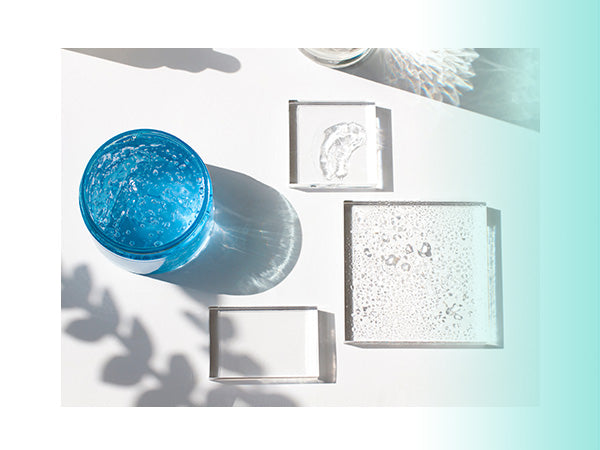You might have heard the terms “Hyaluronic Acid” and “Sodium Hyaluronate” being used interchangeably - and you wouldn’t exactly be wrong. Hyaluronic acid comes in various shapes and forms. Let's dive into how they are different.
Hyaluronic Acid
Hyaluronic acid is a naturally occurring substance in the skin. Its hydrating power and anti-aging properties make it an important ingredient of many skin care products. It is a polymer that helps water retention and keeps your skin moisturized for extended periods. One of the most significant functions of Hyaluronic acid in the human body is it tightly holds the water molecules together and loosens movable parts such as muscles and joints. The consistency of the chemical compound and its affinity of tissues make it ideal for use in several skincare products, especially moisturizers and serums. Hyaluronic acid is a hydrophilic molecule and a wonderful natural moisturizer.
Hyaluronic acid is a naturally occurring glycosaminoglycan (polysaccharides that are an essential part of the connective tissues in the body). It is used for treating different joint ailments such as osteoarthritis.
Sodium Hyaluronate
Sodium Hyaluronate is a Hyaluronic acid salt. The molecular size of Sodium Hyaluronate is much smaller than Hyaluronic acid which helps in the easy penetration of the salt into the skin and adequate retention of water to provide moisturization. Putting it a bit differently, Sodium Hyaluronate is more quickly absorbed than Hyaluronic acid.
It also helps in proper circulation of the blood and absorption of nutrients. Due to its superior hydration power, it is known as one of the most useful natural remedies for smooth, radiant, and moisturized skin. Sodium Hyaluronate is also used as the primary ingredient in Restylane, an injectable dermal filler used to get rid of wrinkles and treat facial volume loss.












